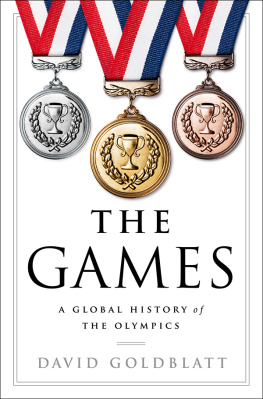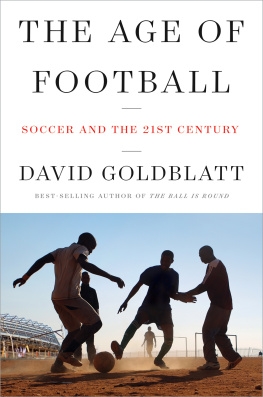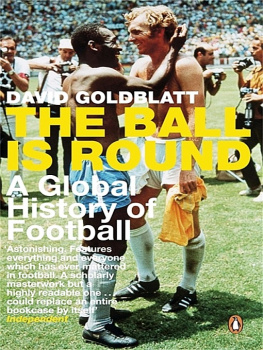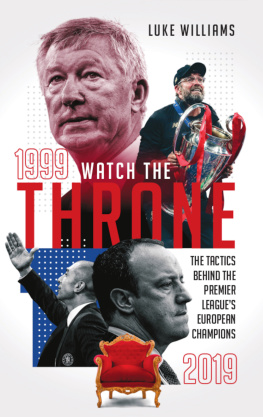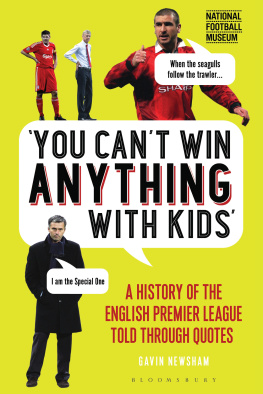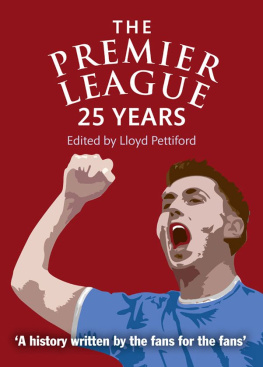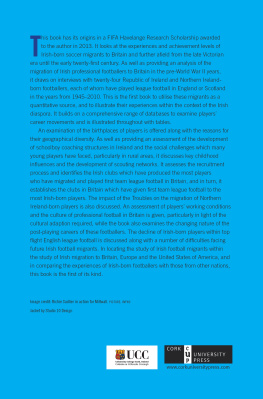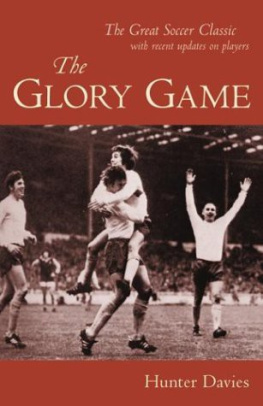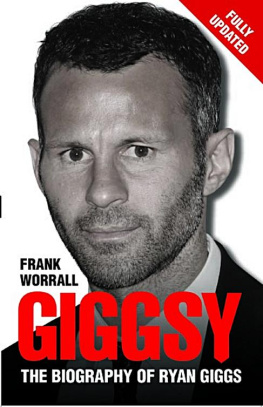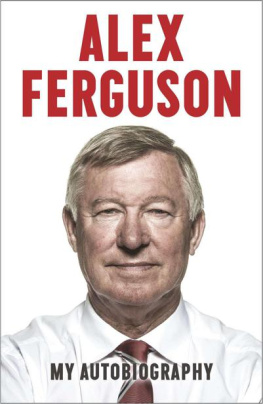THE GAME OF OUR LIVES
ALSO BY DAVID GOLDBLATT
The Ball Is Round: A Global History of Soccer
How to Watch the Olympics: The Essential Guide to the Rules, Statistics, Heroes, and Zeroes of Every Sport
(co-author with Johnny Acton)
Futebol Nation: The Story of Brazil through Soccer

Copyright 2014 by Tabacco Athletic Ltd.
First published in 2014 in the UK by the Penguin Group.
Published by Nation Books, A Member of the Perseus Books Group
116 East 16th Street, 8th Floor
New York, NY 10003
Nation Books is a co-publishing venture of the Nation Institute and the Perseus Books Group.
All rights reserved. No part of this book may be reproduced in any manner whatsoever without written permission except in the case of brief quotations embodied in critical articles and reviews. For information, address the Perseus Books Group, 250 West 57th Street, 15th Floor, New York, NY 10107.
Books published by Nation Books are available at special discounts for bulk purchases in the United States by corporations, institutions, and other organizations. For more information, please contact the Special Markets Department at the Perseus Books Group, 2300 Chestnut Street, Suite 200, Philadelphia, PA 19103, or call (800) 255-1514, or e-mail .
Library of Congress Cataloging-in-Publication Data
Goldblatt, David, 1965-
The game of our lives : the English Premier League and the making of modern Britain / David Goldblatt.
pages cm
Includes bibliographical references and index.
ISBN 978-1-56858-507-9 (electronic)
1. F.A. Premier LeagueHistory. 2. SoccerGreat BritainHistory. 3. SoccerSocial aspectsGreat Britain. 4. Great BritainSocial conditions1945- I. Title.
GV943.55.F36G65 2014
796.3340941dc23
2014031665
First Edition
10 9 8 7 6 5 4 3 2 1
CONTENTS
NOTE FOR THE NORTH AMERICAN EDITION:
SOCCER IS REFERRED TO AS FOOTBALL THROUGHOUT THIS BOOK.
Recently, while teaching at Pitzer College in Los Angeles, I noted almost immediately how little news there was in the Los Angeles Times and elsewhere about Britain. A shift of sentiment in the Beijing housing market or a speech by the Japanese Prime Minister was far more likely to feature than any news from back home. And why shouldnt it? Britain is a tiny island 6,000 miles from Southern California whose cultural, political, and economic reach, although out of proportion with its size, seems less significant with every passing decade.
My students, although familiar in passing with bits of British pop culture, comedy, and music, were neither Anglophobe nor Anglophile. Britain appeared too small a feature on their radar to evoke such extremes, but for one thing: football.
For what it is worth as sociological evidence, the course that I offered on British national identity since the Second World War attracted just nine students. My football course was four times the size and could have been double that again. Perhaps I just wasnt concentrating, but over a few days spent in Manhattan and Brooklyn I failed to see a single Mets or Yankees shirt but I saw a lot of Chelsea and Manchester City tops. But then the combined television audience in the US for the final day of the English Premier League (EPL) in 2014 was larger than the UK audience.
Im not suggesting that football is the only way America engages with Britainour mutual security services and military industrial complexes have a lot to talk aboutbut it is a rare popular bridgehead. The popularity of English football is, I think, a function of the much wider rise of football as a recreational sport, commercial spectacle and popular culture in the United States, yet the EPL is not the only game in town; there are, amongst Americas many soccer cultures, devotees of La Liga and Serie A and diasporic support for teams in the Mexican Liga. However, measured by the value of TV rights if nothing else, the EPL reigns supreme among American cosmopolitan football fans.
Why? In part it must be a matter of language and a long established if little known presence of English football fans left over from the days of the North American Soccer League (NASL). In part it is because the spectacle is tremendously good. Now the richest league in the world and blessed with an extraordinary roster of global talent, the EPL also offers a style of playa seemingly relentless end-to-end intensitythat the more measured Mediterranean leagues cannot match. In contrast to the almost invariably half empty stadiums of Spain and Italy, the EPL delivers loud full houses on almost every occasion. The UEFA Champions League is perhaps the most favored foreign football of all, but you cannot lose your heart to a tournament or love a football confederation, for that you need a football club.
Every one of my students had their English football club and all the strange and serendipitous reasons that people acquire them; family connections, time spent in Britain, a club that felt in some way like the baseball or basketball franchise they supported in the States, because they were winners, because they werent winners, liked the uniform, liked a player and got hooked on the club, etc. I imagine that most if not all American readers of this book will have a similar tale to tell. But by whatever route you have arrived in English football and whatever your intentions, you have stumbled across the most extraordinary prism for understanding England and Britain.
I apologize in advance for the use of the first person plural in this book. I wrote it in my head as a direct address to England and English football. It is not intended to be exclusionary and recognize that in our post-modern global world, the nature of we is always shifting, communities of fate cut across national boundaries. Perhaps then it is better to read we in this book as those who consider English football more than a mere commodity and spectacle for a disengaged global audience, but who think that its values and its pleasures grow out of an old, deeply rooted and richly textured sporting culture that is unmistakably, idiosyncratically English. The we are those who believe that a cosmopolitan outlook is predicated on respect for the local, and that is not a matter of citizenship or location. These are surely the dispositions and attitudes that a global cosmopolitan culture requires in profusion. Making these notions the common sense of the global order is an inconceivably hard task, but that we might achieve a fragment of this from our engagement with football is our good fortune.
When you arrive in England for football its a paradise.

Next page

